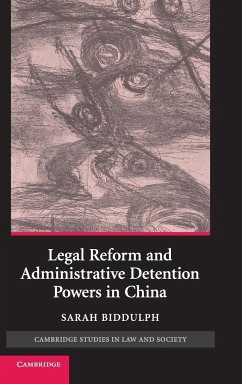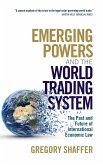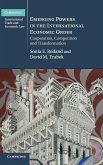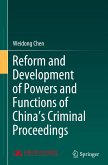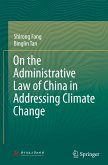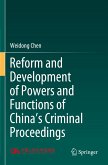This book examines the development of Chinese police powers since the 1950s.
Using a new conceptual framework, the author examines the processes of legal reform in post-socialist countries such as China. Drawing on Bourdieu's concept of the 'field', the increasingly complex and contested processes of legal reform are analysed in relation to police powers. The impact of China's post-1978 legal reforms on police powers is examined through a detailed analysis of three administrative detention powers: detention for education of prostitutes; coercive drug rehabilitation; and re-education through labour. The debate surrounding the abolition in 1996 of detention for investigation (also known as shelter and investigation) is also considered. Despite over 20 years of legal reform, police powers remain poorly defined by law and subject to minimal legal constraint. They continue to be seriously and systematically abused. However, there has been both systematic and occasionally dramatic reform of these powers. This book considers the processes which have made these legal changes possible.
Table of contents:
Part I. Introduction and Conceptual Framework: 1. The problems of legal reform of police administrative detention powers; 2. The legal field and the process of legal reform since 1978; Part II. Social Order and Administrative Detention; 3. Historical antecedents: the 1950s and administrative detention; 4. Social order, the 'hard strike' and administrative detention powers; 5. Revival of administrative detention in the reform era: prostitutes and drug addicts; 6. Re-education through labour; Part III. Legal Reform and its Impact on Administrative Detention: 7. Building a legal environment for police detention; 8. Supervision of police conduct: legalisation and contest; 9. Legal reform catches up with administrative detention; Part IV. Analysis and Conclusion: 10. The field of law, the force of law and the powers that be.
Hinweis: Dieser Artikel kann nur an eine deutsche Lieferadresse ausgeliefert werden.
Using a new conceptual framework, the author examines the processes of legal reform in post-socialist countries such as China. Drawing on Bourdieu's concept of the 'field', the increasingly complex and contested processes of legal reform are analysed in relation to police powers. The impact of China's post-1978 legal reforms on police powers is examined through a detailed analysis of three administrative detention powers: detention for education of prostitutes; coercive drug rehabilitation; and re-education through labour. The debate surrounding the abolition in 1996 of detention for investigation (also known as shelter and investigation) is also considered. Despite over 20 years of legal reform, police powers remain poorly defined by law and subject to minimal legal constraint. They continue to be seriously and systematically abused. However, there has been both systematic and occasionally dramatic reform of these powers. This book considers the processes which have made these legal changes possible.
Table of contents:
Part I. Introduction and Conceptual Framework: 1. The problems of legal reform of police administrative detention powers; 2. The legal field and the process of legal reform since 1978; Part II. Social Order and Administrative Detention; 3. Historical antecedents: the 1950s and administrative detention; 4. Social order, the 'hard strike' and administrative detention powers; 5. Revival of administrative detention in the reform era: prostitutes and drug addicts; 6. Re-education through labour; Part III. Legal Reform and its Impact on Administrative Detention: 7. Building a legal environment for police detention; 8. Supervision of police conduct: legalisation and contest; 9. Legal reform catches up with administrative detention; Part IV. Analysis and Conclusion: 10. The field of law, the force of law and the powers that be.
Hinweis: Dieser Artikel kann nur an eine deutsche Lieferadresse ausgeliefert werden.

